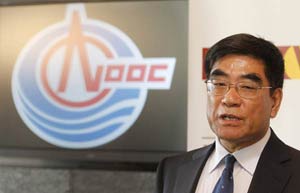Higher degree graduates face battle in job market
(Xinhua) Updated: 2014-07-10 09:57Waning authority of higher degrees
One of the underlying reasons for the situation is that the prestige of higher degrees is waning amid lowering education quality.
China started to expand enrollment of college students in 1999 in a step toward stimulating a weak economy and easing employment pressure. In a similar scheme, the country encouraged the expansion of postgraduate enrollment in 2009.
The expansions have prompted a spike in graduate numbers. Under the ambitious schemes, the number of graduates is estimated to surge to 7.27 million in 2014, five times of that eleven years ago and the highest in history.
"Colleges and students may have boomed over the years, but education quality has been compromised, and so has the authority of higher degrees," said Xiong Bingqi, vice director of 21st Century Research Institute, an independent think tank in Beijing.
Xiong said lots of students pursue higher education not because they are passionate about academic research, but to stave off the grim job market, only to find themselves competing with their "lower" peers.
Students with higher degrees also tend to be pickier than others. According to a survey by MyCOS Data, a Beijing-based firm in higher education consulting and outcome evaluation in China, vocational school graduates prefer jobs in small and medium-sized private companies while undergraduates and postgraduates put state-owned enterprises and government jobs on their priority list.
"Two years ago, I would be happy to be a teacher at an English training school, but now with a master's degree, I expect to find a job with better social status and higher income," said Yu Le. She admitted she has missed quite a few opportunities due to hesitation.
But opportunities for people like Yu are decreasing thanks to the sluggish recovery of the global economy and the slowdown of Chinese economic development, said Liao Mingbo, an official from the employment service department of Jiangxi Province.
"A lot of companies have cut their recruitment quotas by a large margin and there are more entry-level positions than high-end vacancies," he said.
Li Yi, on the other hand, is under no illusions amid intense competition.
"I only have a vocational school degree, so I don't expect too much. When a good opportunity comes, I just grasp it," Li said.
Meanwhile, employers have become more rational and less picky about education degrees.
"Except for certain research posts, we don't require employees to have a master's or a PhD degree; what really matters are their practical skills," said a staff member from the human resources department of Baidu.com, China's top search engine.
In an industrial park in Jiangxi's Jinxian county, scores of young graduates with technical school diplomas boast a monthly salary of 6,000 yuan ($960.6), and such skilled workers are still thin on the ground there.
Employers interviewed by Xinhua reporters said that they like to hire undergraduate job candidates who "have higher work efficiency" than those with master's or PhD degrees, as the latter focus more on research than practical work. Undergraduates are also less prone to job-hopping.
- Top international luxury brand expo opens in Beijing
- Woman sells Beijing house, buys six properties in US
- Green finance needs government intervention: experts
- China signs $1.6b engineering deal for Siberian LNG project
- Fonterra joins Abbott to plan third dairy hub in China
- Lufthansa sees full Air China joint venture not before 2016
- Bigger govt role needed in green finance
- BIT to re-anchor US-China economic relationship

















